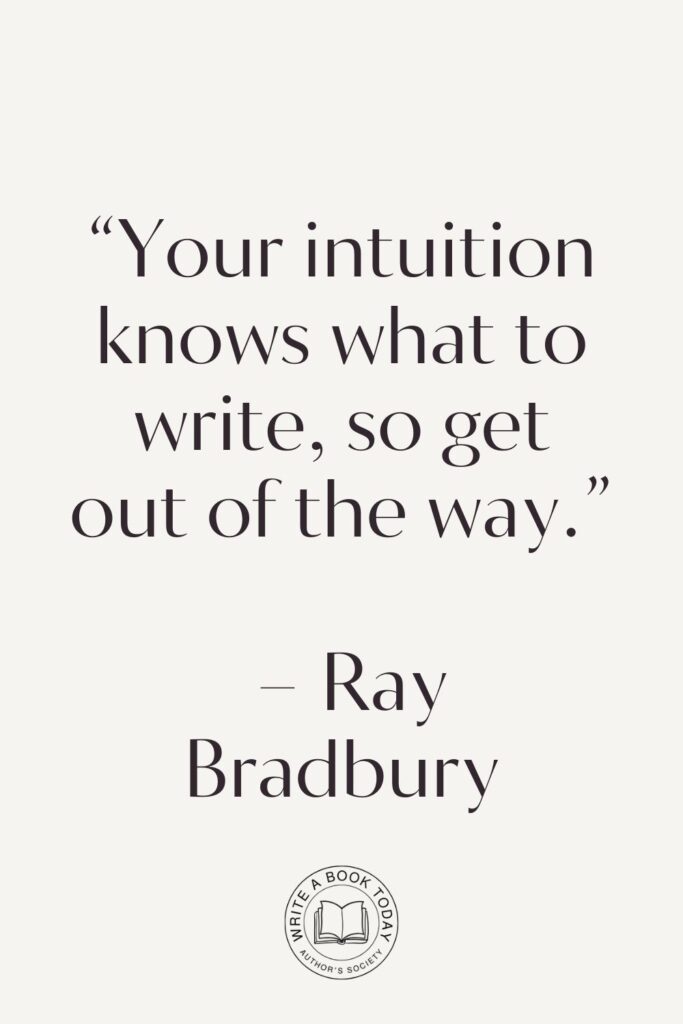Have you ever felt your heart sink after receiving brutal feedback? You’re not alone. Harsh criticism can feel like a punch to the gut, leaving us questioning our abilities and self-worth. Yet, there’s an opportunity hidden within those stinging words—a chance for personal growth.
This guide aims to help you navigate the stormy seas of handling brutal feedback without losing sight of your potential. By transforming criticism into constructive change, you can emerge stronger, wiser, and more resilient. So, let’s dive in and explore how you can turn the seemingly negative into a positive force for growth.
Understanding the Impact of Brutal Feedback
Feedback is essential to personal and professional development, yet it often comes wrapped in harsh packaging. Understanding its impact is the first step in harnessing its power. It’s like rain on a parched field; initially overwhelming, but ultimately nourishing.
No marketing platform? No social following? No problem!
Publisher Rocket helps you market your debut novel like a pro.
It’s a gamechanger for debut authors – try it today!


The Emotional Toll of Harsh Criticism
Receiving harsh criticism can be emotionally draining. It’s akin to standing in front of a firing squad of words piercing your confidence.
The emotional toll can manifest as anxiety, self-doubt, or even anger. These feelings are natural, and acknowledging them is crucial to processing feedback healthily.
Imagine a time when someone’s words felt like a direct attack on your character. Your initial reaction might have been defensive or dismissive, as your mind scrambled to protect your ego.
However, it’s important to remember that these intense feelings are temporary. If approached with patience and self-compassion, they can give way to clarity and understanding over time.
Recognizing Common Reactions to Feedback
When faced with criticism, people often exhibit a range of reactions. Some may retreat into themselves, feeling overwhelmed by the weight of the words.
Others might lash out defensively, unable to separate the critique from their sense of self-worth. Recognizing these reactions can help you manage them more effectively.
Consider how you typically respond to feedback. Do you tend to internalize it, letting it fester and grow into self-doubt? Or do you react outwardly, challenging the feedback head-on? Understanding your default response can empower you to choose a healthier, more constructive approach.
Reflect on past experiences where feedback deeply impacted you. Identify patterns in your emotional responses and consider how they align with your values and goals. This reflection can provide valuable insights into how you process criticism and help you develop strategies for improvement.

The Importance of Emotional Resilience
Emotional resilience is your armor against the slings and arrows of harsh criticism. It’s the ability to bounce back from setbacks and maintain a positive outlook.
Developing emotional resilience is akin to building a muscle; it requires consistent effort and practice, but the rewards are immeasurable.
Building Your Emotional Strength
Strengthening your emotional resilience begins with self-awareness. Recognize your emotional triggers and work on managing them constructively. Practice mindfulness techniques like meditation or deep breathing to center yourself and reduce stress.
Engaging in regular physical activity can also boost your emotional resilience. Exercise releases endorphins, natural mood lifters, helping you cope better with stress and adversity. Moreover, surrounding yourself with supportive individuals who uplift and encourage you is vital in fostering emotional strength.
Create a daily routine that incorporates both physical and mental exercises. This could include a morning jog followed by a few minutes of meditation. Consistency in these practices can significantly enhance your emotional resilience over time, making you better equipped to handle criticism.
Practicing Self-Compassion
Self-compassion is the gentle art of treating yourself with kindness, especially in times of failure or criticism. It’s about recognizing that everyone makes mistakes and that these missteps are growth opportunities. Practicing self-compassion involves acknowledging your imperfections without judgment.
When faced with harsh feedback, try to view it through a lens of understanding rather than self-criticism. Remind yourself that the feedback is not a reflection of your worth but a tool for improvement. Embrace your humanity, and allow yourself the grace to learn and evolve.
Developing a Growth Mindset
A growth mindset is the belief that one can develop one’s abilities and intelligence through dedication and hard work. This mindset is a powerful ally in handling brutal feedback. It transforms criticism from a personal attack into a valuable lesson.
To cultivate a growth mindset, focus on the learning opportunities within the feedback. Ask yourself what you can do differently next time and how you can apply this newfound knowledge to future endeavors. By viewing challenges as stepping stones rather than obstacles, you pave the way for continuous personal development.
Surround yourself with resources that promote a growth mindset, such as books, podcasts, or online courses. Engage with content that inspires and motivates you to embrace challenges and persist in the face of setbacks.

Transforming Feedback into Actionable Steps
Once you’ve built a foundation of emotional resilience, the next step is to transform feedback into actionable steps. This process involves breaking down the input, identifying areas for improvement, and creating a plan to address them.
Analyzing the Feedback Objectively
Approach feedback with an analytical mindset. Separate the emotional response from the actual content of the criticism. Look for patterns or recurring themes in the feedback, as these can highlight key areas for growth.
Ask yourself critical questions: What specific points were raised? Is there a common thread in the feedback you’ve received? By analyzing feedback objectively, you can distill valuable insights that will guide your improvement efforts.
Feeling lost with your debut novel?
Fiverr Pro connects you with expert editors, designers, and marketers – everything you need to get your book ready for success!

Identifying Key Areas for Improvement
Once you’ve analyzed the feedback, pinpoint specific areas that require attention. This might involve enhancing a particular skill, adjusting your approach, or seeking additional training. Prioritize these areas based on their impact on your overall goals.
Consider creating a list of these key areas and organizing them by importance. This structured approach ensures that you focus on the most critical aspects first, maximizing your chances of success.
- Skill enhancement
- Adjusting your approach
- Seeking additional training
Creating a Feedback Response Plan
Once you clearly understand the areas for improvement, develop a feedback response plan. Set specific, measurable goals that align with your personal and professional aspirations. Break these goals into manageable steps and establish a timeline for achieving them.
Accountability is crucial in this process. Share your plan with a trusted friend or mentor who can provide guidance and support. Review your progress regularly and adjust your plan as needed to stay on track.
| Goal | Action Steps | Timeline |
|---|---|---|
| Enhance Presentation Skills | Attend a public speaking workshop | Within 3 months |
| Improve Time Management | Implement a daily planner | Within 1 month |
Turning Criticism into Constructive Change
When embraced positively, criticism can be a catalyst for constructive change. By viewing feedback as a tool for development, you can implement changes that lead to meaningful progress.

Embracing Constructive Criticism
Constructive criticism is feedback intended to help you improve. Unlike harsh criticism, it focuses on specific actions or behaviors rather than personal attacks. Embrace this feedback as a gift, an opportunity to refine your skills and grow.
When receiving constructive criticism, express gratitude to the person providing it. Acknowledge their effort to help you improve and ask clarifying questions to ensure you fully understand their perspective. This approach fosters a positive relationship and encourages ongoing feedback.
Implementing Changes Gradually
Change is a process, not an event. Implementing changes gradually allows you to adapt and refine your approach over time. Start with minor, manageable adjustments and build upon them as you gain confidence and experience.
Monitor the impact of these changes and be open to further feedback. Continuous improvement is a journey; each step brings you closer to your goals. Remember, the path to personal growth is paved with incremental progress.
Google Docs is for notes. Scrivener is for novels. Upgrade your writing game and try it for free today!

Celebrating Small Victories
Amidst the pursuit of growth, it’s important to celebrate your achievements, no matter how small. Recognizing your progress reinforces positive behavior and boosts motivation.
Recognizing Your Progress
Take time to reflect on how far you’ve come since receiving feedback. Celebrate the milestones you’ve achieved and the challenges you’ve overcome. This reflection provides a sense of accomplishment and fuels your determination to continue growing.
Keep a journal of your journey, noting the lessons learned and the victories celebrated. This record is a testament to your resilience and commitment to personal development.
Staying Motivated Through Challenges
Challenges are inevitable on the road to growth, but staying motivated is key to overcoming them. Surround yourself with reminders of your goals and the reasons behind your pursuit of improvement.
Visualize the future you aspire to create and the person you wish to become. Let this vision drive you forward, even when faced with obstacles. Like a beacon in the night, motivation guides you through the darkest moments.

Building a Supportive Network
No journey of growth is complete without a supportive network. Surrounding yourself with individuals who uplift and encourage you can make all the difference in your pursuit of personal development.
Seeking Guidance from Mentors
Mentors are invaluable sources of wisdom and guidance. They offer insights based on their experiences and provide a fresh perspective on challenges you may face. Seek out mentors who align with your values and goals.
Engage in open and honest conversations with your mentors. Share your aspirations and seek their advice on navigating the feedback process. Their support can be a guiding light on your journey to growth.
Sharing Your Experiences with Peers
Sharing your experiences with peers creates a sense of camaraderie and mutual support. Engage in discussions about feedback, challenges, and successes. This exchange of ideas fosters a collaborative environment where everyone benefits.
Your peers can offer valuable feedback and encouragement, reinforcing your commitment to personal development. Together, you can celebrate victories and learn from setbacks, strengthening the bonds of your supportive network.
Final Thoughts on Handling Brutal Feedback
Handling brutal feedback is a skill that requires practice, patience, and perseverance. By understanding its impact, building emotional resilience, and transforming criticism into actionable steps, you can turn harsh words into opportunities for growth.
Remember, every piece of feedback is a stepping stone on your journey to becoming the best version of yourself. Embrace the process, celebrate your progress, and continue to learn and evolve.








